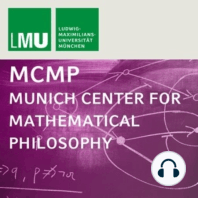74 min listen

IF epistemic logic and mathematical knowledge
IF epistemic logic and mathematical knowledge
ratings:
Length:
67 minutes
Released:
Dec 18, 2014
Format:
Podcast episode
Description
Manuel Rebuschi (Poincaré Archives, University of Lorraine, Nancy) gives a talk at the Workshop on Mathematics: Objectivity by Representation (11 November, 2014) titled "IF epistemic logic and mathematical knowledge". Abstract: Can epistemic logicstate anything interesting about the epistemology of mathematics? That's one of Jaakko Hintikka’s claims. Hintikka was not only the founder of modal epistemic logic (1962), since he also worked on the foundations of mathematics (1996). Using what he calls "second generation" epistemic logic (2003), i.e. independence-friendly (IF) epistemic logic, Hintikka revisits the epistemology of mathematics, and in particular the debate between classical and intuitionistic mathematics (2001). The aim of the talk is to show that Hintikka is right regarding IF epistemic logic, for such a logic enables us to account for interesting features of mathematical knowledge. However, the path is not as easy as that Hintikka suggests. I will show that the well-known issue of logical omniscience directly threatens the understanding of intuitionism offered by IF epistemic logic.
Released:
Dec 18, 2014
Format:
Podcast episode
Titles in the series (22)
A useful method for obtaining alternative formulations of the analytical hierarchy: Colloquium Mathematical Philosophy by MCMP – Philosophy of Mathematics